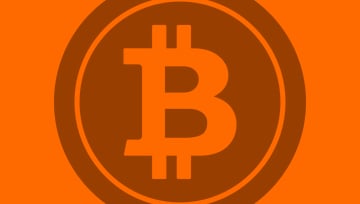The esports competitive video game tournaments are proving to be highly compatible with bitcoin. The industry offers easy payments, portable game item ownership, prize pools, fair games with transparent and permanent records, accessibility from any device, anti-cheating measures and a huge billion-dollar market. eSports investors are just beginning to explore bitcoin and as the number of events increases and the size of those events grows it’s becoming clear that bitcoin is well-suited to the expanding casino sign up bonus and esports industry.
Bitcoin eSports
Bitcoin for esports is nothing new. eSports has been interested in bitcoin for a while. But until recently, the blockchain industry’s human and technical limitations put it out of reach. The Bitcoin Core (BTC) block size seemed to put the idea of any kind of blockchain out of consideration while other cybercurrencies such as EOS and Ethereum were more appealing for game builders. Those platforms’scaling and technical limitations, however, limited their suitability.
Another problem involves convincing the gaming industry’s big players and companies that Bitcoin can deliver the benefits that they need. That means that bitcoin enthusiasts must attract enough building and game designing talent from mainstream producers to build their own platform from scratch with bitcoin.
To answer that challenge Bitcoin SV debuted this year. Bitcoin SV has removed all data limits and restored the original Bitcoin protocol to meet gaming companies’ needs. One company that made the switch to Bitcoin is Kronoverse. Kronoverse, which developed the popular combat/strategy game CryptoFights, switched to Bitcoin from Ethereum so it can now demonstrate Bitcoin’s esports capabilities.
According to Kronoverse reps, bitcoin’s unique advantages which include game item ownership, the technically-capable BSV, verifiable results and betting on matches, make it the platform of choice.
Kronoverse CEO Adam Kling said, “When I looked at the scaling roadmap of Ethereum, it became clear that we were never going to be able to have a million players playing on Kronoverse. Instead, everyone is having to develop layer-two technologies and are only submitting the results to the Ethereum blockchain. With Bitcoin SV, we wouldn’t have to do that.”
Esports
In many ways, esports is similar to online gaming but it has its own unique components. eSports dates back to the 1970s but today’s esports have no resemblance to the pac-man type gaming of that era. eSports started to really take off when multi-player games came onto the gaming scene. At that point, competitors could play the same game against one another -- like regular sports – instead of simply trying to achieve the highest score.
eSports involves a wide range of gaming events. Combat games such as League of Legends, DOTA 2, StarCraft II and Counter Strike attract the most attention but there are also simpler games available. Once there’s someone to build the system and organize the competition, the tournament is ready to be played.
The CryptoFights by Kronoverse, for example, can be played only on mobile yet it’s designed specifically for competition.
Legitimate Sports
One of the biggest controversies involves whether esports can be classified as a legitimate sport. eSport enthusiasts don’t pay much attention to the argument since the esports tournaments attract massive numbers of viewers, participants and money. They don’t care what it’s called.
For over a year, observers have been predicting the esports will eclipse traditional sporting tournaments such as the UEFA Champions League and Formula One in revenues. Even before the COVID-19 sports shutdowns, industry insiders predicted that esports would bring in revenues of $2.3 billion by 2022. Now that esports has taken center stage in the sports world, revenues will certainly be much, much higher.
Online
Until recently, the biggest esports tournaments were taking place in actual stadiums. But today, esports tournaments have moved online and it’s likely that they’ll stay online in the future. When the tournament is held online it’s more accessible to more competitors which enhances its appeal and reach.
Last year the International Olympic Committee held a summit to debate whether to allow esports competitions in the 2020 Olympics. Supporters argued that esports should be considered a sporting event but detractors raised concerns regarding the lack of an international regulatory body and the violent content of many of the games. Some people continue to campaign for esports to be featured at the Olympics in the future – perhaps as a showcase side event for starters or a demonstration event.
Bitcoin Involvement
One way for bitcoin to help the industry would involve issues of game integrity – the question of how to detect cheating and whether esports games are equally fair to all competitors. Game integrity is a problem for the industry and is an even bigger problem with online esports when players use their own devices.
Kronoverse has found that Bitcoin can play a big part in overcoming these issues. Elements such as item ownership, game moves and game rules can all be recorded permanently on the blockchain, giving others access to analyze and scrutinize.
Blockchains like Ethereum are designed for data processing. They experience difficulties when on-chain projects became popular. BTC can’t process data. In order to handle large quantities of data, these platforms must lean on second-layer protocols and that can be costly. Bitcoin has unlimited scalability and that makes bitcoin more suitable for managing these issues.
Once a successful esports platform runs on Bitcoin BSV, larger players will start to recognize its benefits. Kronoverse is positioning itself to be that leader. Kronoverse has been beta-testing CryptoFights for almost half a year and plans to hold more open betas soon. If all goes as planned, Kronoverse will launch a marketplace by the end of 2020 with a fully-playable game and competition soon to follow.


